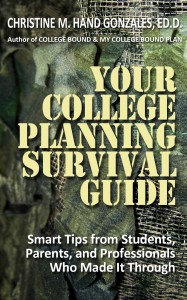 You may be asking yourself if you can appeal a decision of denial from a college. There may be a chance you can. Some colleges have very strict policies stating if you were denied acceptance to their institution, the decision stands and there is no appeal process. Other colleges will allow for an appeal. My suggestion would be to contact the college directly to see if this is an option. Check their website or speak directly to the admissions office.
You may be asking yourself if you can appeal a decision of denial from a college. There may be a chance you can. Some colleges have very strict policies stating if you were denied acceptance to their institution, the decision stands and there is no appeal process. Other colleges will allow for an appeal. My suggestion would be to contact the college directly to see if this is an option. Check their website or speak directly to the admissions office.
If you have a legitimate reason to appeal you may want to discuss this with you admissions representative. Some of the circumstances that might warrant a review could include:
- Significant new information that was not presented at admission time such as new test scores, major awards, clerical errors, inaccurate information on your transcript, and reasons outside your control. Read more about grounds for appealing by clicking here.









